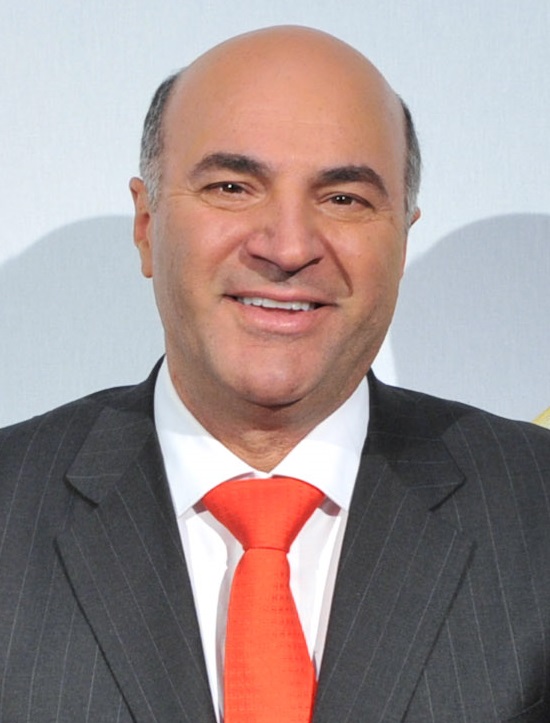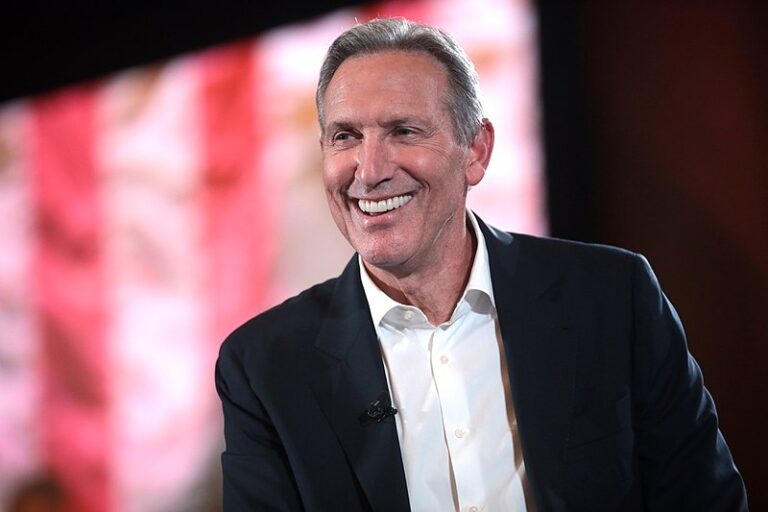Leadership Brilliance Unveiled: Lessons and Stories from Kevin O’Leary

Unraveling the Leadership Brilliance: Exploring Kevin O’Leary’s Lessons and Stories
Leadership is an art that requires constant learning, adaptability, and inspiration. Throughout history, great leaders have emerged, each with their unique stories and invaluable lessons that transcend time and inspire generations to come. One such leader who has made an indelible mark in the world of business and entrepreneurship is Kevin O’Leary.
Kevin O’Leary’s journey from humble beginnings to becoming a household name in the realm of business is a testament to his unwavering determination, strategic acumen, and exceptional leadership skills. With over four decades of experience in leadership development, I have had the privilege of studying and analyzing the journeys of numerous influential leaders. In this article, we embark on a compelling exploration of Kevin O’Leary’s leadership brilliance, unraveling the invaluable lessons and inspiring stories that lie at the core of his success.
Born and raised in Montreal, Canada, Kevin O’Leary’s entrepreneurial spirit was nurtured from an early age. The lessons he learned during his formative years played a pivotal role in shaping his mindset, resilience, and unwavering pursuit of success. O’Leary’s journey has been a rollercoaster ride of triumphs and setbacks, with each experience molding him into the remarkable leader he is today.
As we delve into O’Leary’s leadership journey, we begin by examining the power of resilience. One cannot traverse the path of leadership without encountering obstacles and failures along the way. Through a captivating story, we witness O’Leary’s ability to bounce back from adversity, inspiring us to cultivate our own resilience and forge ahead in the face of challenges.
Central to O’Leary’s leadership approach is the power of vision. A clear vision acts as a compass, guiding leaders through uncertain and complex business landscapes. We explore how O’Leary crafted a compelling vision for his ventures, and provide practical advice on creating and effectively communicating a vision that inspires and motivates others to align their efforts towards a shared purpose.
Strategic thinking is another cornerstone of O’Leary’s leadership prowess. With a keen eye for opportunities and a calculated decision-making process, he has navigated the intricacies of business with remarkable success. By analyzing a specific scenario, we unravel the elements of O’Leary’s strategic decision-making process and provide insights for leaders to enhance their own strategic thinking capabilities.
A leader’s ability to negotiate skillfully is paramount in driving favorable outcomes and fostering mutually beneficial relationships. O’Leary’s renowned negotiation skills have been honed through years of experience, and we dissect his strategies and techniques, offering practical guidance for leaders to become effective negotiators in their own right.
However, O’Leary’s leadership style extends beyond shrewdness and negotiation prowess. He has a reputation for balancing brutal honesty with empathy, a delicate blend that cultivates high-performance teams. We explore the art of being an honest empathetic leader, delving into O’Leary’s approach and providing guidance for leaders to strike the right balance between candor and compassion.
Beyond his business endeavors, Kevin O’Leary demonstrates a profound commitment to social responsibility and philanthropy. We shed light on his philanthropic initiatives and the impact they have had on society, emphasizing the power of giving back and how leaders can integrate social responsibility into their leadership practices.
As we conclude this journey through Kevin O’Leary’s leadership lessons and stories, it is my hope that you, as a reader, will draw inspiration and practical wisdom from his experiences. Each lesson and story shared in this article serves as a stepping stone for your own leadership development, reminding us that leadership is not solely about personal success, but also about positively influencing the world around us.
Join me as we unravel the leadership brilliance of Kevin O’Leary, and embark on a transformative exploration of lessons and stories that will empower and equip you on your own leadership journey.
The Early Days: Nurturing Entrepreneurial Spirit
Kevin O’Leary’s journey towards becoming a prominent leader and entrepreneur can be traced back to his early days, where the seeds of his entrepreneurial spirit were sown. Raised in Montreal, O’Leary was exposed to the world of business from a young age, as his mother ran a small clothing business and his father worked as a salesman. These formative experiences provided him with a firsthand understanding of the challenges and rewards of entrepreneurship.
One of the key lessons we can learn from O’Leary’s early days is the power of resilience. Despite his privileged upbringing, O’Leary encountered his fair share of setbacks and failures. One notable experience was his first foray into the world of fashion. At the age of 11, he invested his savings into a small business selling small bags of coins to children. Unfortunately, the venture did not succeed, and O’Leary faced disappointment and financial loss. However, rather than letting this deter him, he used it as a valuable learning opportunity. He realized that failure is not the end, but rather a stepping stone towards future success.
O’Leary’s ability to bounce back from failure is a testament to his resilience. This trait has been instrumental in his leadership journey, allowing him to persevere through challenges, adapt to changing circumstances, and emerge stronger than before. Resilience is a vital quality for leaders, as they often face uncertainty, adversity, and high-stakes decisions. By embracing failure as a catalyst for growth and learning, leaders can develop the tenacity and determination necessary to overcome obstacles and inspire their teams to do the same.
To cultivate resilience, leaders can draw inspiration from O’Leary’s experiences. They can embrace a growth mindset that views failures as valuable lessons rather than personal shortcomings. By reframing setbacks as opportunities for improvement, leaders can maintain a positive outlook and navigate challenges with a sense of purpose and determination. Additionally, leaders can foster resilience within their teams by creating a supportive environment that encourages risk-taking, learning from mistakes, and embracing setbacks as growth opportunities.
Furthermore, O’Leary’s early experiences highlight the importance of a strong work ethic and a relentless pursuit of knowledge. From a young age, he demonstrated an innate curiosity and a drive to understand the world of business. He recognized that success is not achieved overnight, but rather through hard work, continuous learning, and a commitment to personal growth.
Leaders can adopt O’Leary’s work ethic by cultivating a passion for lifelong learning. They can seek out opportunities to expand their knowledge, whether through formal education, mentorship, or self-directed learning. By staying abreast of industry trends, emerging technologies, and best practices, leaders can make informed decisions, seize new opportunities, and inspire their teams with their depth of knowledge.
Additionally, leaders can instill a culture of continuous learning within their organizations. By encouraging employees to embrace a growth mindset and providing them with access to professional development opportunities, leaders can foster an environment that thrives on innovation, adaptability, and intellectual curiosity.
The early days of Kevin O’Leary’s journey serve as a rich source of leadership lessons. From resilience to a strong work ethic and a commitment to lifelong learning, his experiences lay the foundation for his future success. Aspiring leaders can draw inspiration from O’Leary’s early days, recognizing that setbacks are not roadblocks but stepping stones towards growth. By embracing resilience, cultivating a strong work ethic, and fostering a passion for continuous learning, leaders can navigate the challenges of leadership with confidence and inspire their teams to achieve remarkable results.
The Role of Vision: Paving the Path to Success
Kevin O’Leary’s remarkable journey as a leader and entrepreneur is deeply intertwined with his ability to craft and communicate a compelling vision. A clear and inspiring vision serves as a guiding light, providing direction, purpose, and a sense of unity for individuals and organizations alike. In this section, we explore the pivotal role of vision in O’Leary’s leadership approach and delve into practical strategies for leaders to develop their own powerful visions.
O’Leary’s success can be attributed in part to his visionary mindset. From the early stages of his entrepreneurial ventures, he had a clear sense of where he wanted to go and what he wanted to achieve. This vision served as the bedrock for his strategic decision-making, helping him identify opportunities, allocate resources effectively, and navigate the ever-changing business landscape.
One key lesson we can learn from O’Leary is the importance of articulating a compelling vision. A vision must not only be clear in the leader’s mind but also effectively communicated to inspire and align the efforts of others. O’Leary possessed a unique ability to distill complex ideas into simple, powerful messages that resonated with stakeholders. His visionary communication skills allowed him to attract investors, motivate employees, and gain the support of key partners.
To develop a compelling vision, leaders can follow several practical steps. Firstly, it is essential to engage in introspection and reflect on one’s core values, passions, and long-term aspirations. Understanding personal motivations enables leaders to craft a vision that aligns with their authentic selves and creates a sense of purpose.
Once the personal vision is established, leaders should focus on translating it into a broader vision for their teams and organizations. This involves considering the needs and aspirations of stakeholders, as well as the larger societal context in which the organization operates. A compelling vision should be ambitious yet realistic, inspiring yet attainable, and should resonate with the hearts and minds of those it seeks to impact.
Furthermore, effective communication is paramount in bringing the vision to life. Leaders must convey the vision with clarity, enthusiasm, and conviction. This involves utilizing various communication channels, such as speeches, presentations, and written materials, to consistently reinforce the vision and its underlying principles. Additionally, leaders should actively engage with their teams, encouraging dialogue, answering questions, and ensuring that everyone understands and embraces the shared vision.
O’Leary’s approach to vision also highlights the importance of adaptability. While a clear vision provides a sense of direction, leaders must remain open to evolving circumstances and be willing to adjust their strategies and tactics accordingly. This requires a balance between holding onto the core principles of the vision while remaining flexible in the face of changing market dynamics or unforeseen challenges.
Leaders can foster adaptability by regularly evaluating the relevance and impact of their vision in light of new information or external factors. They should encourage feedback and input from team members, as well as conduct regular assessments of the organization’s progress towards the vision. By embracing a culture of continuous improvement, leaders can ensure that their vision remains dynamic, relevant, and responsive to the evolving needs of their stakeholders.
The role of vision in leadership cannot be overstated. Kevin O’Leary’s success can be attributed, in part, to his ability to craft a compelling vision that served as a compass for his entrepreneurial endeavors. By developing a clear vision, effectively communicating it, and remaining adaptable, leaders can inspire their teams, align their efforts, and pave the path to success. Aspiring leaders should embrace the lessons from O’Leary’s visionary mindset, recognizing that a powerful vision acts as a catalyst for transformation, innovation, and enduring impact.
Embracing Strategic Thinking: Navigating Complex Business Landscapes
Kevin O’Leary’s leadership brilliance extends beyond his visionary mindset to his strategic thinking capabilities. Throughout his career, he has demonstrated a keen ability to navigate complex business landscapes, identify opportunities, and make calculated decisions that drive success. In this section, we explore O’Leary’s strategic thinking approach and provide insights and strategies for leaders to enhance their own strategic decision-making skills.
Strategic thinking is a mindset and set of cognitive processes that allow leaders to analyze situations holistically, anticipate future trends, and make informed choices that align with the organization’s goals. O’Leary’s success can be attributed, in part, to his deliberate and calculated approach to decision-making.
One key lesson we can draw from O’Leary’s strategic thinking is the importance of gathering and analyzing data. O’Leary is known for his meticulous research and deep understanding of market dynamics, trends, and financial metrics. This data-driven approach allows him to make well-informed decisions based on a comprehensive assessment of the landscape.
Leaders can enhance their strategic thinking by cultivating a mindset of curiosity and a thirst for knowledge. They should actively seek out information and diverse perspectives, staying informed about industry trends, emerging technologies, and competitive landscapes. By staying abreast of relevant data, leaders can make decisions grounded in evidence rather than assumptions.
Furthermore, strategic thinking requires the ability to see the big picture while also understanding the nuances of specific situations. O’Leary’s ability to zoom in and out, shifting between macro and micro perspectives, enables him to identify patterns, spot opportunities, and assess risks comprehensively.
Leaders can develop this skill by cultivating systems thinking—the ability to understand the interconnectedness and interdependencies within complex systems. By analyzing the various components of a situation and understanding how they interact, leaders can gain a holistic perspective that informs their strategic decisions. This involves considering not only the immediate impacts of a decision but also its ripple effects across the organization and beyond.
In addition to data-driven analysis and systems thinking, strategic thinking necessitates a willingness to take calculated risks. O’Leary understands that opportunities often come with inherent uncertainties, and leaders must be willing to make bold decisions and take calculated risks to achieve success. However, these risks should be informed by thorough analysis, a clear understanding of the organization’s capabilities, and a well-defined risk mitigation strategy.
Leaders can cultivate a risk-taking mindset by creating a culture that encourages experimentation and learning from failures. By providing a safe space for innovation and calculated risk-taking, leaders empower their teams to think strategically and contribute valuable insights. This fosters a culture of continuous improvement and adaptability, key attributes in navigating complex business landscapes.
Furthermore, strategic thinking involves considering the long-term implications of decisions rather than focusing solely on short-term gains. O’Leary’s ability to balance immediate opportunities with long-term sustainability has contributed to his enduring success. Leaders should adopt a similar mindset, considering not only the immediate benefits but also the potential long-term consequences of their decisions on various stakeholders and the organization as a whole.
Strategic thinking is an essential skill for leaders navigating complex business landscapes. Kevin O’Leary’s ability to analyze data, embrace systems thinking, take calculated risks, and consider long-term implications has been instrumental in his leadership journey. By cultivating a data-driven mindset, embracing systems thinking, encouraging calculated risk-taking, and considering long-term impacts, leaders can enhance their strategic thinking capabilities and make informed decisions that drive sustainable success. Aspiring leaders should learn from O’Leary’s strategic thinking approach, recognizing its significance in adapting to change, seizing opportunities, and creating a competitive advantage in the dynamic business world.
The Art of Negotiation: Mastering the Deal
Kevin O’Leary’s leadership prowess extends to his exceptional negotiation skills. Throughout his career, he has earned a reputation for being a shrewd negotiator, adept at securing favorable deals and maximizing value for his ventures. In this section, we delve into O’Leary’s approach to negotiation and provide insights and techniques for leaders to become effective negotiators in their own right.
Negotiation is a fundamental skill for leaders as it underpins many critical aspects of business, including partnerships, contracts, acquisitions, and team collaborations. O’Leary’s success in negotiation is rooted in his ability to understand and leverage key principles and techniques to achieve desired outcomes.
One key lesson we can learn from O’Leary’s negotiation style is the importance of preparation. O’Leary approaches negotiations armed with comprehensive research, a clear understanding of his objectives, and a thorough analysis of the opposing party’s positions and interests. This preparation allows him to enter negotiations with confidence and a strategic advantage.
Leaders can enhance their negotiation skills by dedicating time and effort to thorough preparation. This involves conducting research on the other party, understanding their needs, interests, and potential constraints. By gathering relevant information, leaders can tailor their negotiation strategies and develop creative solutions that satisfy both parties’ interests.
Another crucial aspect of O’Leary’s negotiation approach is his ability to maintain emotional composure and remain focused on the desired outcomes. O’Leary’s renowned “Mr. Wonderful” persona may come across as ruthless at times, but behind the tough exterior lies a calculated negotiator who remains calm under pressure. This emotional resilience enables him to make rational decisions and avoid being swayed by emotional manipulation during high-stakes negotiations.
Leaders can develop emotional composure by practicing self-awareness and emotional intelligence. By understanding their own emotions and triggers, leaders can cultivate self-control and maintain a calm demeanor, even in tense negotiation situations. This allows them to think critically, listen actively, and respond strategically, increasing the likelihood of achieving mutually beneficial outcomes.
Additionally, effective negotiators understand the value of active listening and effective communication. O’Leary’s negotiation style involves actively listening to the other party’s concerns, needs, and perspectives. This enables him to identify areas of overlap and find solutions that satisfy both parties’ interests.
Leaders can enhance their active listening skills by focusing on the other party’s words, body language, and underlying motivations. By demonstrating empathy and seeking to understand the other party’s perspective, leaders can build rapport and foster an environment conducive to productive negotiations.
Moreover, effective communication is critical during negotiations. Leaders should articulate their positions clearly, present compelling arguments, and express their interests in a persuasive manner. By mastering the art of persuasive communication, leaders can influence the other party and build a strong case for their desired outcomes.
Negotiation also involves the art of compromise and finding win-win solutions. O’Leary recognizes the importance of seeking mutually beneficial outcomes that create value for both parties. He approaches negotiations with a mindset of collaboration rather than a win-at-all-costs mentality, which allows him to build long-term relationships and partnerships.
Leaders can adopt a similar approach by focusing on common ground and exploring creative solutions that address the underlying interests of both parties. By embracing a collaborative mindset, leaders can build trust, foster goodwill, and cultivate lasting relationships, setting the stage for future collaborations and mutually beneficial opportunities.
Negotiation skills are crucial for leaders in achieving favorable outcomes and building successful partnerships. Kevin O’Leary’s approach to negotiation, characterized by thorough preparation, emotional composure, active listening, effective communication, and a collaborative mindset, offers valuable insights for aspiring leaders. By incorporating these principles and techniques into their negotiation repertoire, leaders can navigate complex business landscapes, forge impactful partnerships, and maximize value for their organizations.
Leadership Style: Balancing Brutal Honesty and Empathy
Kevin O’Leary’s leadership style is a unique blend of brutal honesty and empathy. While he is renowned for his straightforward and sometimes confrontational approach, he also demonstrates a genuine concern for the well-being and success of his teams. In this section, we explore O’Leary’s leadership style and delve into the lessons it offers for leaders seeking to strike the delicate balance between candor and compassion.
One key aspect of O’Leary’s leadership style is his commitment to brutal honesty. He is known for providing direct feedback and not shying away from delivering tough messages. O’Leary believes that honest and candid communication is essential for driving improvement, fostering accountability, and ultimately achieving success.
Leaders can learn from O’Leary’s commitment to honesty by embracing transparency and open communication within their teams. By providing clear expectations, constructive feedback, and holding team members accountable, leaders create a culture of trust and continuous improvement. Honest communication encourages employees to take ownership of their work, learn from mistakes, and strive for excellence.
However, O’Leary’s leadership style goes beyond brutal honesty. He also recognizes the importance of empathy and understanding the individual needs and motivations of his team members. Despite his direct approach, O’Leary takes the time to listen, empathize, and provide support when needed. He understands that leadership is not only about achieving results but also about fostering an environment where individuals feel valued, supported, and empowered.
Leaders can adopt O’Leary’s empathetic approach by actively practicing empathy and demonstrating genuine care for their team members. This involves actively listening to their concerns, understanding their perspectives, and providing support and guidance when needed. By showing empathy, leaders create a positive work environment where team members feel heard, respected, and motivated to give their best.
One challenge in balancing brutal honesty and empathy is avoiding the perception of being harsh or uncaring. O’Leary has been criticized for his blunt demeanor, which some perceive as lacking empathy. However, upon closer examination, it becomes evident that his intention is not to demean or belittle, but rather to drive results and foster growth.
Leaders can strike the balance between brutal honesty and empathy by focusing on their intentions and the impact of their communication. They should ensure that their honest feedback is delivered with respect, consideration, and a genuine desire to help individuals improve. Leaders should also be mindful of their body language, tone of voice, and choice of words, ensuring they convey empathy and understanding alongside their direct message.
Furthermore, effective leaders recognize that different individuals may require varying levels of honesty and support. Some team members may thrive under the challenge of direct feedback, while others may require a more sensitive approach. Tailoring the leadership style to the needs of each individual fosters a culture of inclusivity and individualized support.
Kevin O’Leary’s leadership style, characterized by a balance of brutal honesty and empathy, offers valuable insights for leaders seeking to create high-performance teams. By embracing honest communication, providing constructive feedback, and fostering accountability, leaders can drive improvement and results. Simultaneously, by demonstrating empathy, actively listening, and providing support, leaders create a positive work environment where individuals feel valued and motivated. Striking the delicate balance between candor and compassion enables leaders to achieve outstanding results while nurturing the growth and well-being of their teams.
Giving Back: Social Responsibility and Philanthropy
Kevin O’Leary’s leadership journey extends beyond business success to his commitment to social responsibility and philanthropy. O’Leary recognizes the importance of giving back to society and actively engages in philanthropic endeavors. In this section, we shed light on O’Leary’s philanthropic initiatives and explore the power of giving in leadership.
O’Leary’s dedication to social responsibility stems from a belief that successful leaders have a responsibility to use their resources and influence to make a positive impact on society. He has been involved in various philanthropic activities, supporting causes such as education, entrepreneurship, and environmental conservation. O’Leary’s philanthropy goes beyond writing checks; he actively seeks opportunities to share his knowledge, mentor aspiring entrepreneurs, and inspire others to contribute to meaningful causes.
One crucial lesson we can learn from O’Leary’s philanthropic endeavors is the power of giving. Leaders who embrace social responsibility and actively contribute to their communities gain more than just a positive public image. Giving back allows leaders to make a tangible difference in the lives of others, create lasting change, and inspire a sense of purpose within their organizations.
Leaders can incorporate giving back into their leadership approach by aligning their philanthropic efforts with their organizational values and goals. By identifying causes that resonate with their mission, leaders can rally their teams around a shared purpose and instill a sense of pride and fulfillment in their work.
Furthermore, leaders can encourage employee engagement in philanthropy by creating opportunities for volunteerism and supporting charitable initiatives. By fostering a culture of giving, leaders empower their teams to make a positive impact beyond their day-to-day work, strengthening employee morale, and fostering a sense of community within the organization.
O’Leary’s philanthropic initiatives also exemplify the concept of shared value, whereby businesses can create both economic and social value simultaneously. By integrating social responsibility into their business strategies, leaders can unlock opportunities for innovation, attract socially conscious customers and partners, and enhance their brand reputation.
Leaders can incorporate shared value by integrating social and environmental considerations into their decision-making processes. By evaluating the potential social and environmental impacts of business activities, leaders can identify opportunities to create positive change while simultaneously achieving their organizational goals.
Moreover, giving back provides leaders with a unique perspective and understanding of the communities they serve. By actively engaging with social issues and working alongside individuals from diverse backgrounds, leaders gain insights into the challenges and aspirations of different stakeholders. This broader perspective enhances their ability to make informed decisions, develop inclusive strategies, and build meaningful relationships with employees, customers, and communities.
Kevin O’Leary’s commitment to social responsibility and philanthropy showcases the transformative power of giving in leadership. By actively engaging in philanthropic endeavors, leaders can make a positive impact on society, inspire their teams, and align their organizations with a higher purpose. Incorporating giving back into leadership practices creates a culture of social responsibility, fosters employee engagement, and enhances brand reputation. Aspiring leaders should follow O’Leary’s example, recognizing that the act of giving not only benefits society but also brings personal fulfillment and strengthens the fabric of their organizations.
Forging a Path of Leadership Brilliance: Embracing Kevin O’Leary’s Lessons
The leadership journey of Kevin O’Leary serves as a remarkable source of inspiration and valuable lessons for aspiring leaders. Through his experiences and achievements, O’Leary exemplifies the qualities and skills necessary to thrive in the dynamic world of leadership. As we conclude this comprehensive exploration of O’Leary’s leadership brilliance, we reflect on the enduring impact of his leadership legacy and the key takeaways for leaders seeking to make their mark.
Kevin O’Leary’s journey has taught us the power of resilience. From his early days facing setbacks and failures, O’Leary’s ability to bounce back and learn from his experiences showcases the importance of perseverance and unwavering determination. Leaders can embrace resilience by reframing failures as opportunities for growth, fostering a growth mindset within themselves and their teams.
O’Leary’s visionary mindset has been instrumental in his success. His ability to craft and communicate a compelling vision has guided his strategic decision-making, motivated his teams, and attracted partners and investors. Leaders can develop their visionary skills by aligning their personal values with their organization’s mission, crafting clear and inspiring visions, and effectively communicating them to stakeholders.
Strategic thinking is another hallmark of O’Leary’s leadership brilliance. His capacity to analyze complex business landscapes, make calculated decisions, and adapt to changing circumstances has been key to his accomplishments. Leaders can enhance their strategic thinking abilities by gathering and analyzing data, embracing systems thinking, taking calculated risks, and considering the long-term implications of their decisions.
O’Leary’s negotiation skills have played a pivotal role in his success. His ability to prepare thoroughly, maintain emotional composure, actively listen, and find win-win solutions has enabled him to secure favorable deals and build successful partnerships. Leaders can become effective negotiators by dedicating time to preparation, developing emotional intelligence, practicing active listening, and embracing a collaborative mindset.
The balance between brutal honesty and empathy is a defining aspect of O’Leary’s leadership style. While his direct approach may appear harsh at times, his underlying empathy and genuine concern for his teams’ success create a supportive and growth-oriented environment. Leaders can adopt a similar approach by providing honest feedback with respect, actively listening to their team members, and demonstrating empathy and support.
Lastly, O’Leary’s commitment to social responsibility and philanthropy exemplifies the power of giving back. By actively engaging in philanthropic endeavors, leaders can make a positive impact on society, foster a sense of purpose within their organizations, and create shared value. Incorporating social responsibility into leadership practices strengthens employee engagement, enhances brand reputation, and provides leaders with a broader perspective.
As we reflect on Kevin O’Leary’s leadership journey, it is evident that his brilliance stems not only from his business acumen but also from his ability to inspire and empower others. By embracing resilience, cultivating a visionary mindset, enhancing strategic thinking, mastering negotiation skills, balancing honesty and empathy, and giving back, leaders can follow in O’Leary’s footsteps and create lasting impact.
In the dynamic and ever-changing landscape of leadership, the lessons and stories of Kevin O’Leary serve as guiding beacons. Aspiring leaders can draw inspiration from his experiences, adapt his strategies to their own contexts, and forge their own paths to success. By continuously learning, evolving, and embracing the core principles of leadership, leaders have the potential to create extraordinary legacies and positively influence the world around them.





